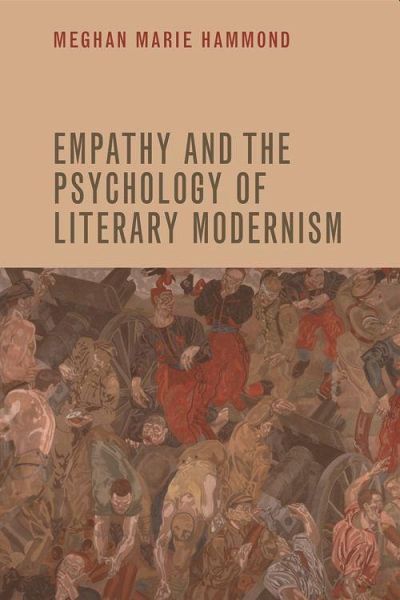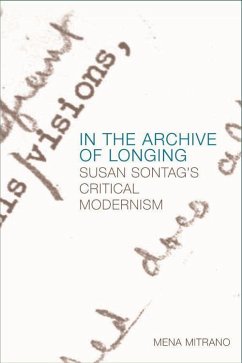
Empathy and the Psychology of Literary Modernism
Versandkostenfrei!
Versandfertig in über 4 Wochen
122,99 €
inkl. MwSt.

PAYBACK Punkte
61 °P sammeln!
'Hammond's original study makes a powerful case that modernism coincides with - and contributes to - a cultural shift from the concept of "sympathy" to one of "empathy". Her illuminating readings reveal the centrality of empathy to the entire modernist project.' Max Saunders, Director, Arts and Humanities Research Institute, King's College London 'The modernist desire to get inside the minds of others has been much commented upon, but Meghan Marie Hammond shows brilliantly that the resulting dissolution of psychological distance was actually something writers both desired and feared.' Peter Ni...
'Hammond's original study makes a powerful case that modernism coincides with - and contributes to - a cultural shift from the concept of "sympathy" to one of "empathy". Her illuminating readings reveal the centrality of empathy to the entire modernist project.' Max Saunders, Director, Arts and Humanities Research Institute, King's College London 'The modernist desire to get inside the minds of others has been much commented upon, but Meghan Marie Hammond shows brilliantly that the resulting dissolution of psychological distance was actually something writers both desired and feared.' Peter Nicholls, New York University SHOWS HOW FIN DE SIÈCLE CONCEPTIONS OF EMPATHY ARE WOVEN INTO THE FABRIC OF LITERARY MODERNISM 'Empathy' is a cognitive and affective structure of feeling, a bridge across interpersonal distance. Empathy and the Psychology of Literary Modernism looks into the little-known history of empathy, revealing how this multi-faceted concept had a profound effect on literary modernism. Meghan Marie Hammond shows how five exemplary writers (Henry James, Dorothy Richardson, Katherine Mansfield, Ford Madox Ford and Virginia Woolf) tackle the so-called 'problem of other minds' in ways that reflect and enrich early twentiethcentury discourses of fellow feeling. Hammond argues that these authors reconfigure notions of intersubjective experience; their writings mark a key shift away from sympathetic forms of literary representation toward empathic forms that strive to provide an immediate sense of another's thoughts and feelings. MEGHAN MARIE HAMMOND received her PhD in English from New York University and teaches at the University of Chicago. She is co-editor of the collection Rethinking Empathy Through Literature (2014). Her next book is a history of the corpse in modern literature.












